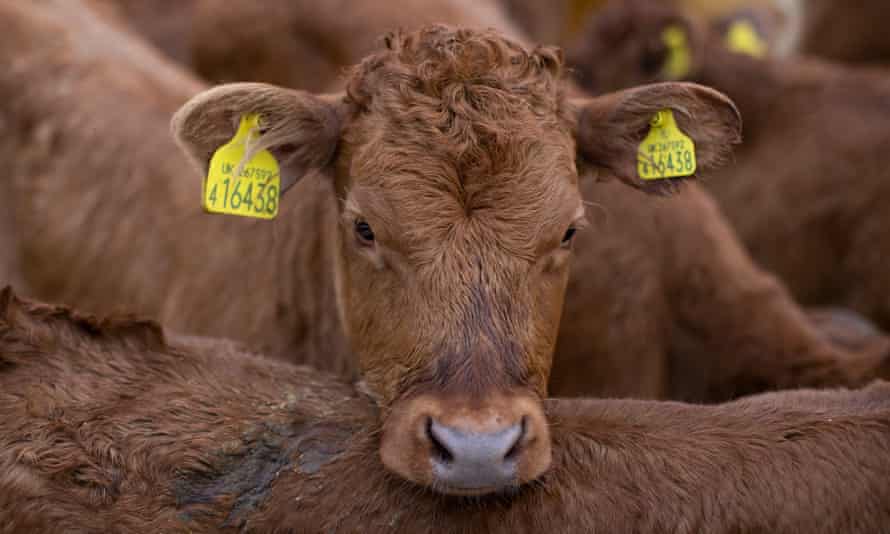Food strategy for England calls for big cut in meat consumption
The government-commissioned review lays out the damage our diet and farming system wreaks on the environment

The new food strategy for England, commissioned by the government, lays out in stark detail the damage the current food and farming system wreaks on the environment, as well as our health. It is the biggest destroyer of nature and a major source of climate warming, it says.
The report takes aim at overconsumption of meat. “Our current appetite for meat is unsustainable,” it says. “85% of farmland is used to feed livestock [and] we need some of that land back.”
That 85% of land provides only 32% of the calories we eat, it says: “By contrast, the 15% of farmland that is used to grow plant crops for human consumption provides 68% of our calories.” The report also tackles the myth that grass-fed livestock are greener, saying: “The more intensively you rear some animals, the more carbon-efficient they tend to be.”
It recommends meat consumption is cut by 30% within a decade. If the government accepted this, it would be a world-leading goal. But while it is consistent with the advice from the government’s official advisers, the Climate Change Committee, many scientific studies have concluded much higher cuts in rich, western nations are needed if the climate crisis is to be halted.
One major analysis concluded Europeans and North Americans need to cut meat eating by 80% for their diet to be both climate friendly and healthy. Another said a 90% cut in beef eating was required to beat global heating. Avoiding meat and dairy products is the single biggest way to reduce your environmental impact on the planet, according to some researchers.
The report proposes the 30% target is met by “nudges” to behaviour and replacement of meat by plant-based alternatives, ruling out a meat tax. Food is deeply embedded in culture, and the environment secretary, George Eustice, said in June that lecturing people on their diets is the wrong approach. The fake claims in the US that Joe Biden wanted to ban beef burgers shows the dangers.
But Marco Springmann, at the University of Oxford, said: “The report shies away from recommending decisive policies that would help citizens reduce their meat consumption by highlighting the public opposition to meat taxes. However, its own polling indicated that 75% of respondents either supported or were not opposed to taxes on some meats.”
“Behavioural science suggests targeted dietary changes are unlikely to be achievable without comprehensive measures, including fiscal incentives and mandates,” he said, alongside clear recognition from policymakers of the damage that meat causes.
In November, the UK’s health professions called for a meat tax. Polling for WWF-UK published on Thursday also shows almost 80% of people hold the government responsible for ensuring healthy, environmentally friendly food is cheap and easily available.
Change is happening anyway, with most people already accepting they should eat less meat, be that for environmental, health or animal welfare reasons. Public sector caterers serving billions of meals a year in schools, universities, hospitals and care homes pledged in April 2020 to cut the amount of meat they serve by 20%.
Younger consumers and farmers are leading the way from feasting on meat towards greener food production and rewilding of land. The government is also providing incentives for older farmers to retire. But the question is whether this generational turnover will be fast enough to halt the accelerating climate crisis.
The rapidly growing impacts of global heating being seen around the world suggest not, meaning political action will be needed. Leaders have had to win battles over unpopular windfarms, expensive electric cars and more. But the battle of the beef burger may be the toughest of the lot.